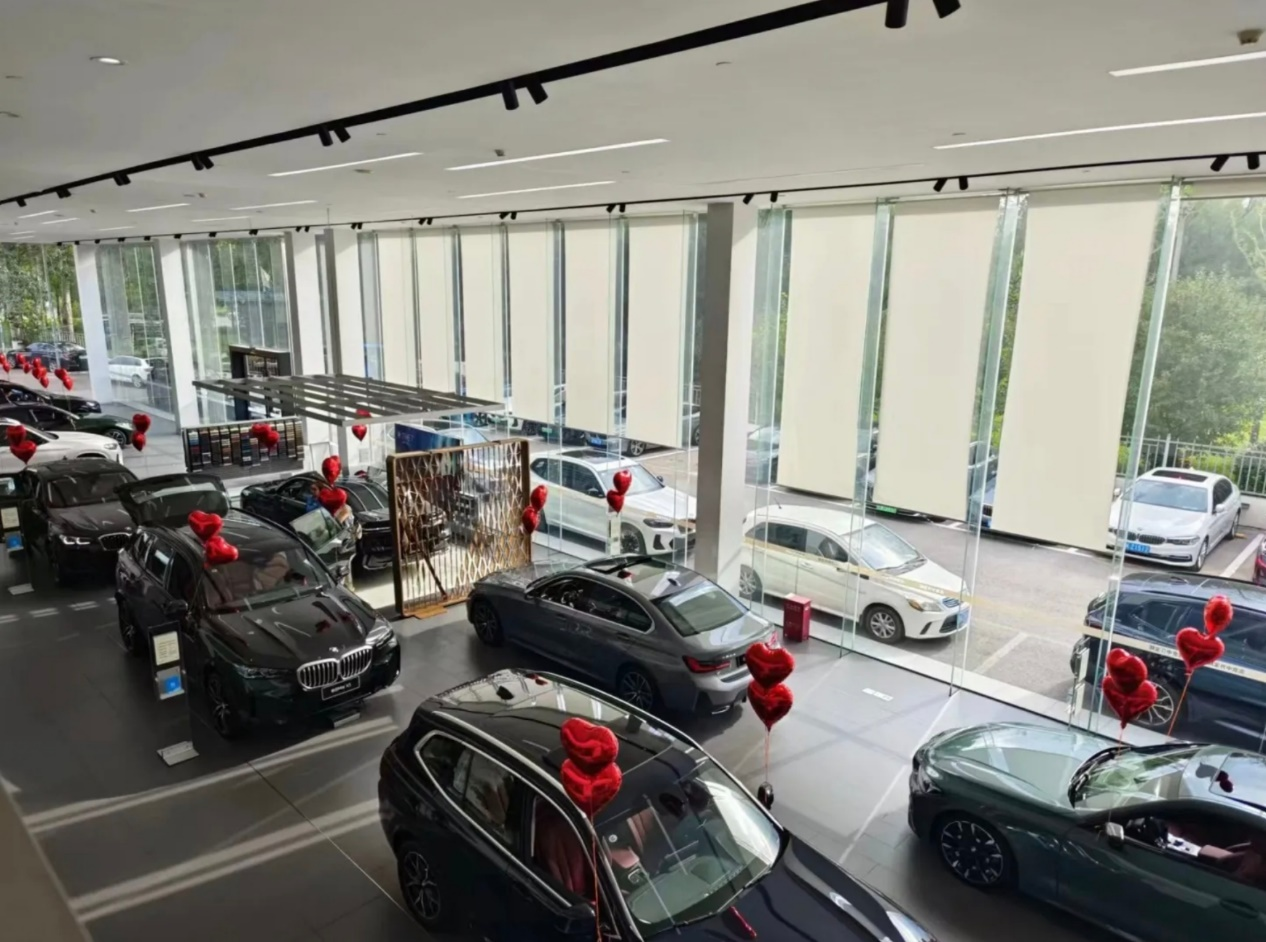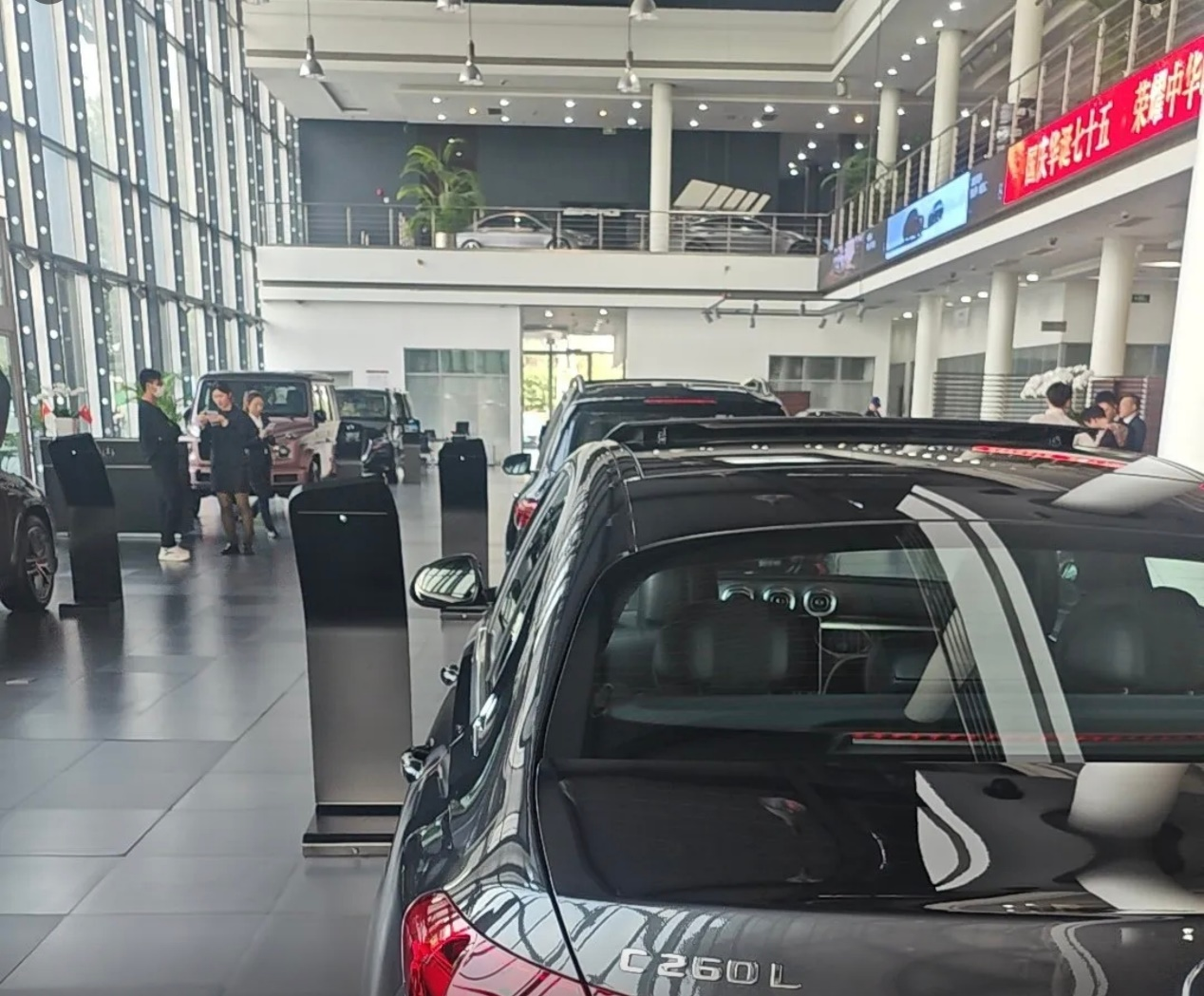
BMW had quite a price war in July, leading to a 50% decrease in domestic sales in August. In September, BMW-authorized dealers lowered their prices again.
Although BMW China officials stated that they have not made any recent adjustments to the suggested retail price, authorized dealers independently determine retail prices based on market conditions and specific trading circumstances. However, it appears that dealer-determined prices have led BMW back into a price war.
For luxury brands, Audi and Benz have also reduced their retail prices starting from mid-September. The adjustment range for the Audi A8L and Mercedes-Benz EQC is around 300,000 to 400,000 yuan.
During the National holiday, Car Insight visited several BBA dealerships in Beijing to boost sales volume. Multiple salespersons introduced recent promotions, with one BMW salesperson stating that prices have returned to those of July.
The freezing prices have attracted more onlookers
During our visit to the market, we discovered that several BMW dealerships in Beijing have been adjusting prices for multiple models since September. For example, the starting price of the BMW iX1, which had an MSRP of 299,900 yuan, has been reduced to 188,800 yuan. The i3 model is priced at 353,900 yuan MSRP, is now available from 178,800 yuan. As for the flagship all-electric model i7 from BMW, the entry-level variant with an MSRP of 949,000 yuan now comes with a bare car price of 663,400 yuan.
The main reason BMW dealers returned to price wars is sales. Despite expecting a stable market environment from the third quarter of this year, BMW's sales in August were almost halved compared to last year after withdrawing from the price war.
Will consumers accept BMW's price cuts this time? Judging from the situation at dealers during the holiday, the outlook appears bleak. Firstly, cash-holding consumers tend to buy when prices rise and avoid purchasing when prices fall. After BMW announced a gradual price recovery in July, there was indeed an upsurge in sales as it tapped into the pent-up demand of those waiting to spend their money. However, once these consumers made their purchases, other potential buyers became less enthusiastic about buying cars. Now with another round of price cuts, more and more consumers are anticipating further reductions in prices.

During the visits, a BMW salesperson shared with Car Insight: 'After price increases in July and August, foot traffic to the store actually decreased. Previously, we could attract customers with low-priced models like the i3 and 3 Series. However, after losing the price advantage, it is evident that more people are now just making inquiries and very few are placing orders; they are all waiting and observing.
During the long holiday period, Car Insight observed that although more people were browsing cars in-store, very few placed orders due to the frequent price fluctuations of BMW. Sales are feeling anxious and making unexpected price changes, which has contributed to consumers adopting a cautious wait-and-see attitude amidst the current declining sales trend.
The 'price line' is under critical market pressure
Apart from BMW, Audi and Mercedes-Benz, luxury car brands, are also grappling with price wars. After BMW withdrew in July, Mercedes-Benz and Audi formed a "defense alliance" and jointly exited the price war. However, their sales continue to decline, facing similar challenges as BMW.
According to a salesperson from Car Market Insights, the best-selling Audi models, A4L and Q5L, have recently undergone significant price reductions. The A4L can now be purchased with a discount of up to 200,000 RMB, while the Q5L's discount reaches approximately 230,000 RMB. Surprisingly, the bare car price of the Audi Q4 e-tron is currently higher than its July discount at 190,000 RMB. Similarly, Mercedes-Benz is also offering substantial discounts on their vehicles: "The lowest configuration of the C-Class now starts at 200,000 RMB; GLC is priced around 270,000 RMB; E-Class costs about 300,000 RMB; and EQE's price has dropped to 260,000 RMB. These prices remain essentially unchanged compared to those in July." 
The fierce competition is putting immense pressure on BBA. In September, Li Auto achieved a record high of 53,709 new car deliveries, marking a YoY increase of 48.9%. AITO delivered 35,560 vehicles. During the National holiday, Car Insight also saw a steady stream of visitors exploring cars at Huawei stores in some third and fourth-tier cities. A friend who initially planned to buy a BMW or Mercedes-Benz ultimately chose the AITO M5 due to its long battery life, Huawei's ecosystem, and the HarmonyOS intelligent driving experience.
BBA’s financial report for the first half of 2024 indicated a downward trend in performance indicators, primarily driven by a significant decline in profit. BBA attributed this decline to the increasingly intense market environment in China.
The BBA's participation in the 'price war' will have short-term market effects, but its long-term sustainability is questionable due to pressure from domestic brands and new energy sources. Finding a balance between brand value and market share will be crucial for the brand’s fate.
In the era of new energy vehicles, multinational brands face transitional challenges, while domestic brands' continuous investment in research and development has accumulated technological advantages in electrification. With supportive policies, they have gained consumer trust and gradually eroded the market share of multinational brands in this sector.
In August, domestic new energy vehicles had a penetration rate of 75.9%, while multinational brands only reached 7.8%. Looking back five years ago, joint venture brands and domestic brands had a market share ratio of 5:4. However, by August 2024, including luxury brands like Benz, BMW, and Audi, the overall market share of these multinational brands has declined to 36.8%.
It is worth noting that China's sales of new energy vehicles in the first eight months of this year reached 7.037 million units, almost eight times higher than in 2019. The sales are expected to reach 11.5 million units this year. For car manufacturers, while overall production and sales volume are increasing, the polarization between different companies will become more pronounced, reflecting the transformation and upgrading of the automotive industry.
Translator:Wei Xiong

 Room 1104,Block B,JingBan Building,6 Middle Beisanhuan Road,Xicheng District,Beijing
Room 1104,Block B,JingBan Building,6 Middle Beisanhuan Road,Xicheng District,Beijing
 (8610)62383600
(8610)62383600
 quanqixiang@carresearch.cn
quanqixiang@carresearch.cn
 京公网安备:11010202007638号|京ICP备17032593号-2|Report illegal and bad information:010-65993545-8019 jubao@carresearch.com
京公网安备:11010202007638号|京ICP备17032593号-2|Report illegal and bad information:010-65993545-8019 jubao@carresearch.com
Legal support:Beijing Yingke Law Firm|All rights reserved, DO NOT reproduce without permission